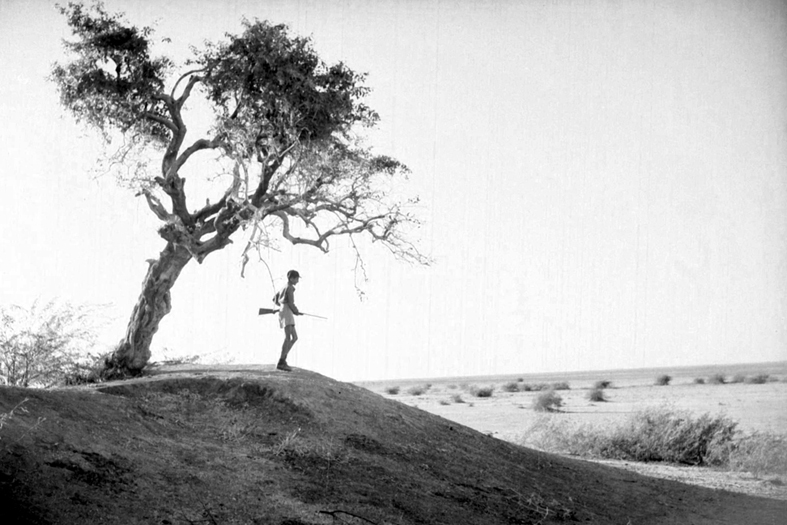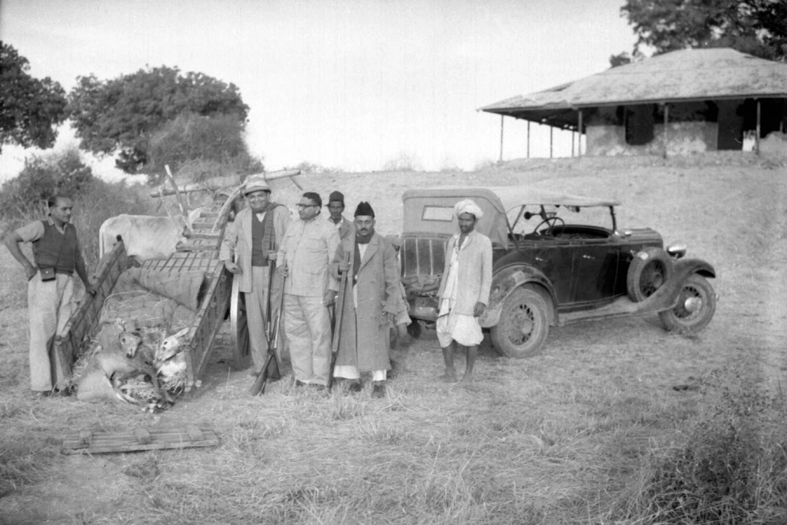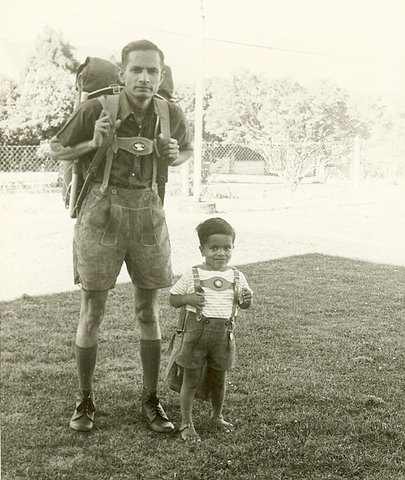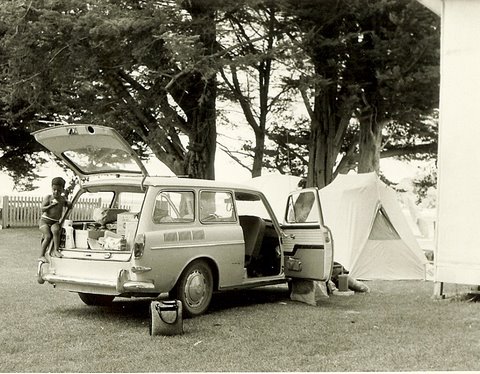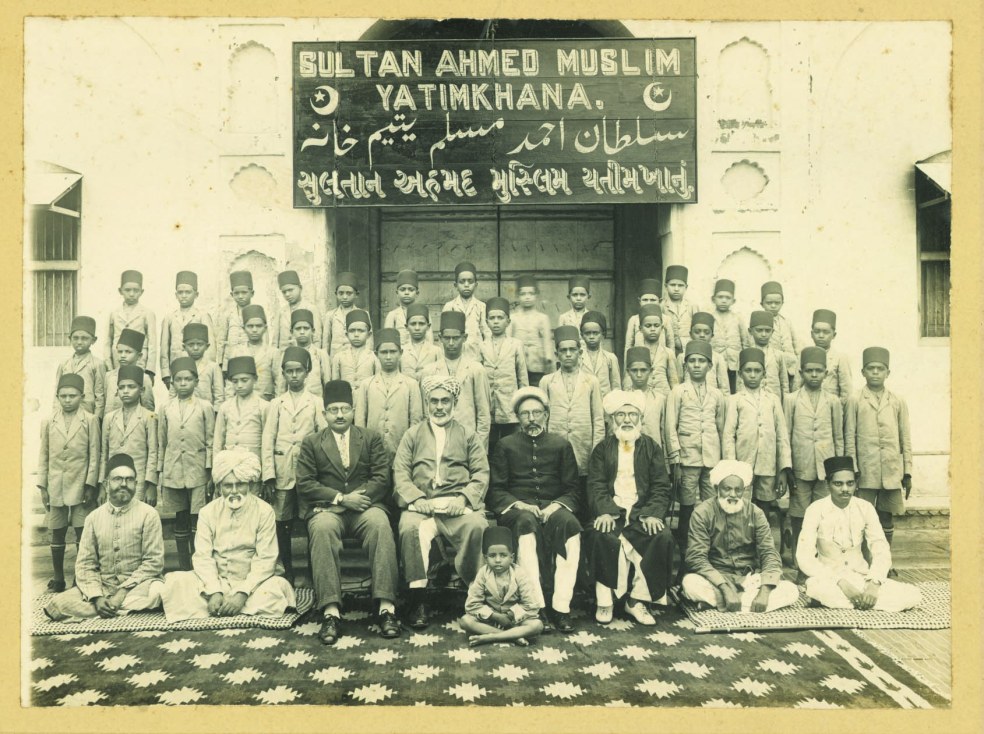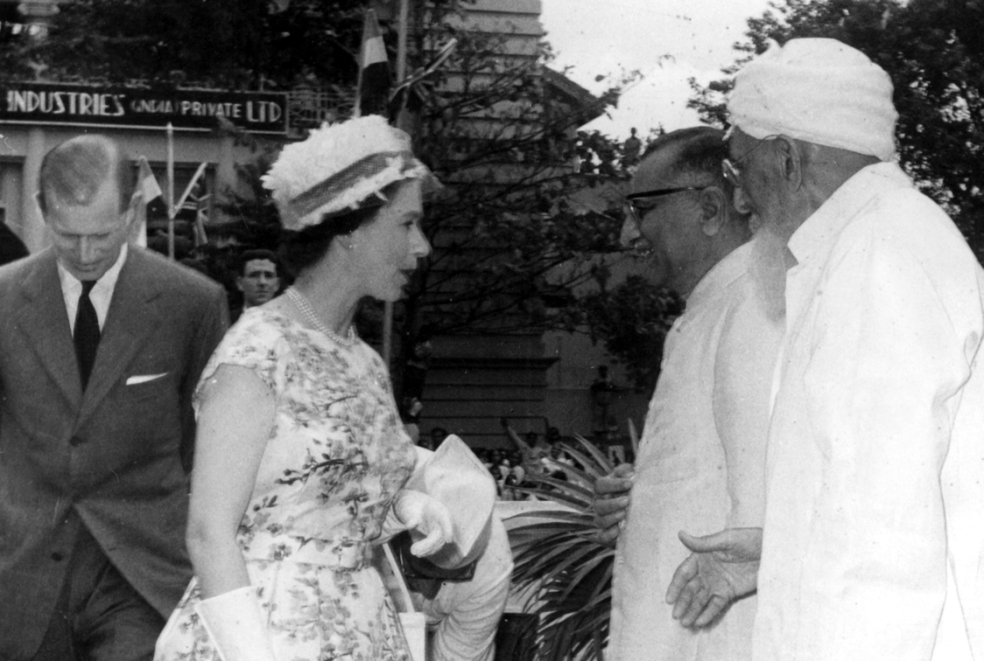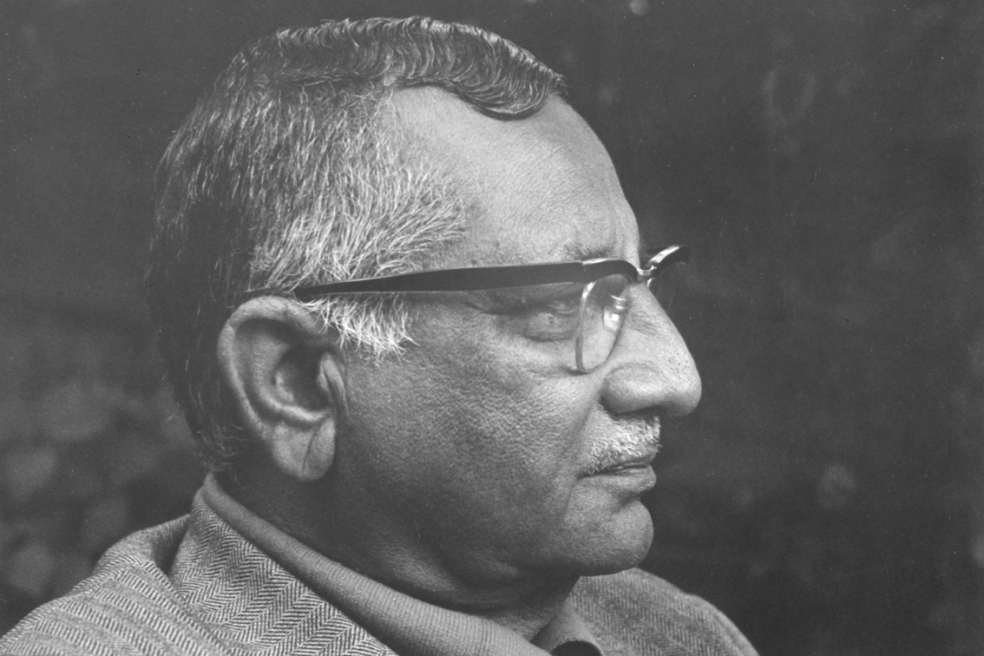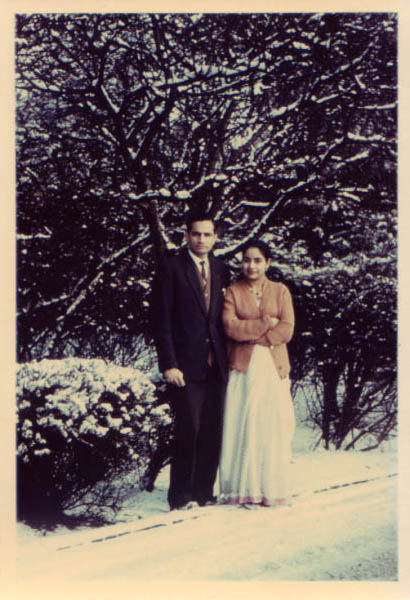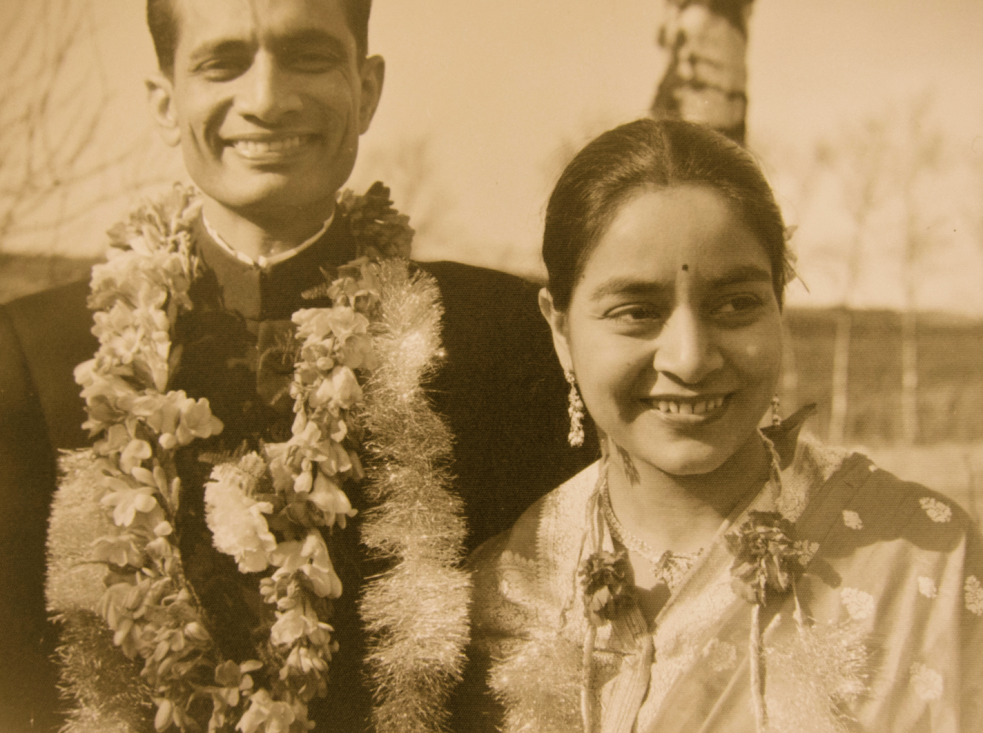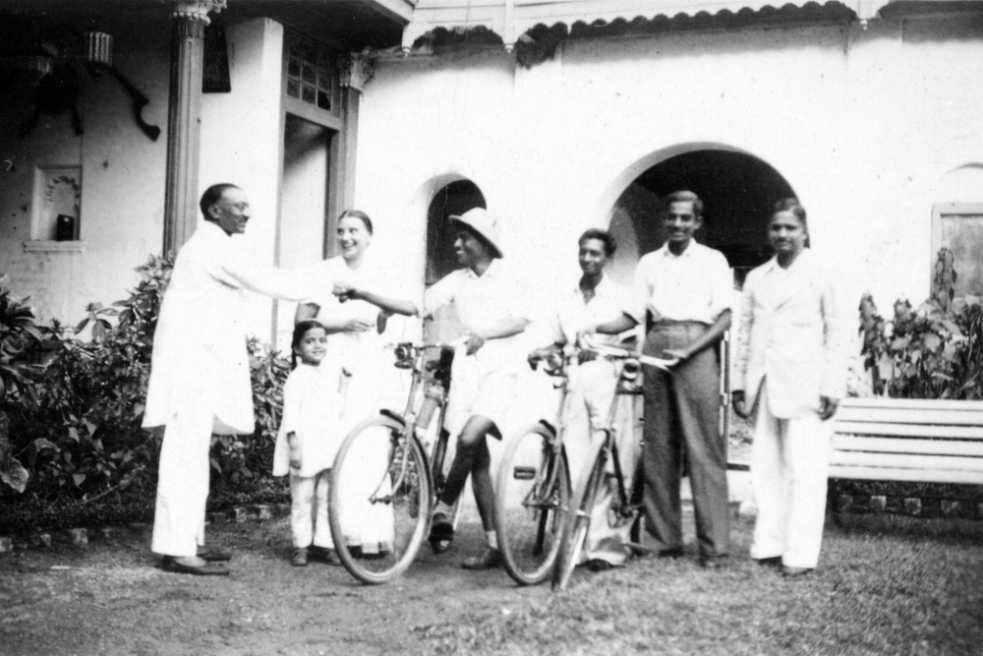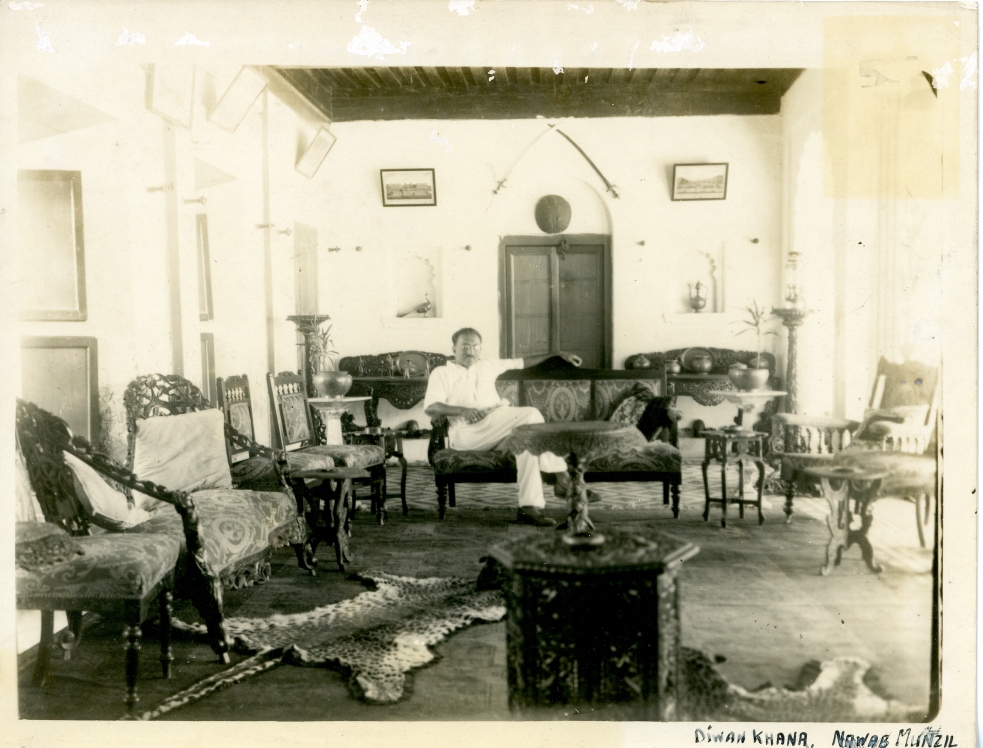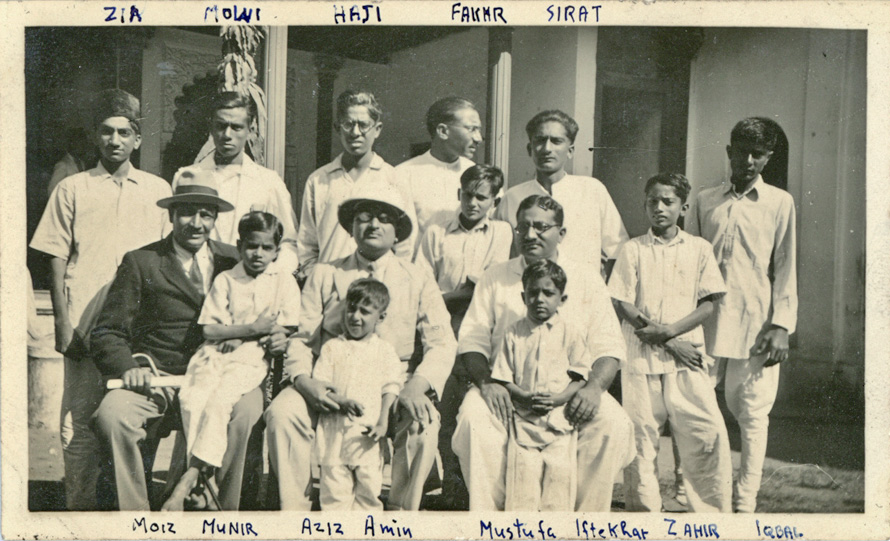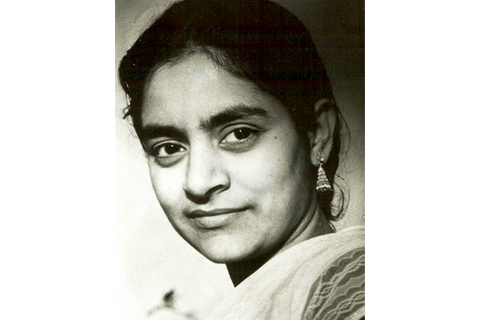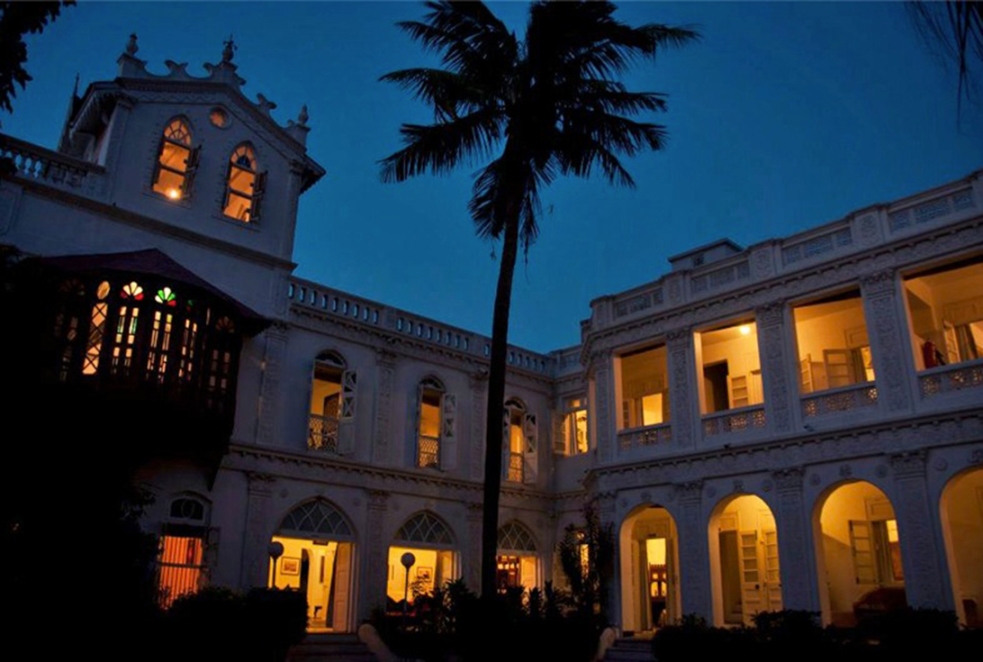
Divan’s Bungalow Hotel, 2012 – photographed by Sana Javeri Kadri
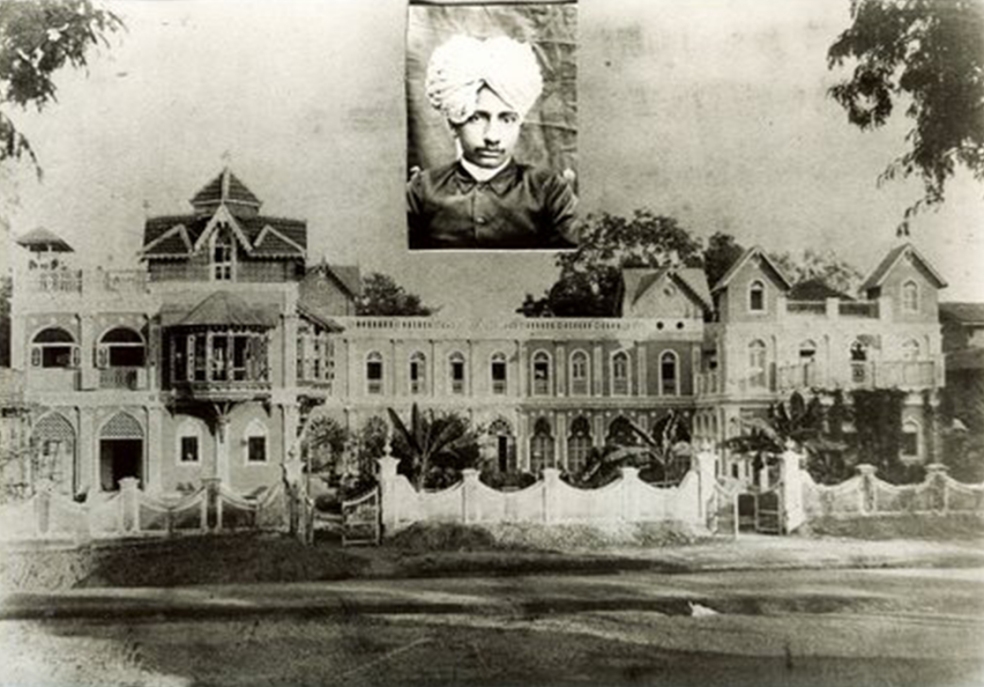
Diwan’s Bungalow with my father, 1920s
Our family home, Diwan’s Bungalow, was in Ahmedabad’s old city on a street which is now named after my father. It is a colonial-style bungalow with a unique blend of Muslim and Gujarati architecture and has been in our family for over 150 years. When I was small, there was no electricity and our rooms and hallways were lit up by kerosene lamps housed in beautifully cut glass shades.

Our neighbourhood in Raikhad, Ahmedabad
There was a constant stream of visitors, both relatives and dignitaries, for whom we would host large dinners from time to time – often featuring goat biriyani. My favourite uncle in Baroda’s wife, Else, was from Germany and had introduced us to creme caramel which became a popular desert tradition with guests at our home also.
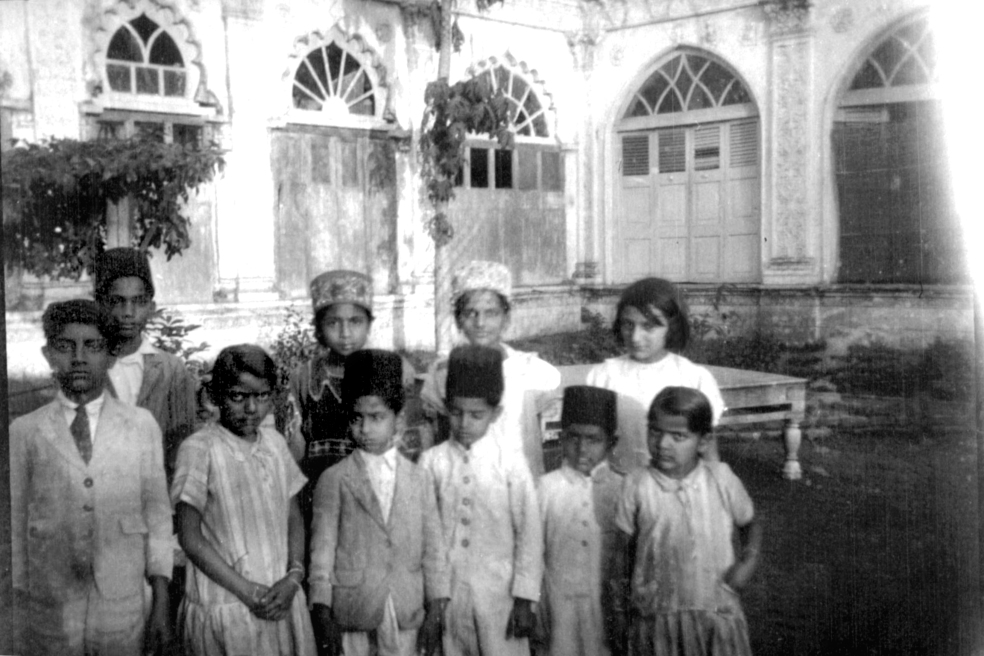
Neighbourhood children would come to visit at the bungalow
– many related to us in one way or another.
Iftikhar and I are in the front row, 4th and 5th from the left
Another drawcard for neighbourhood visitors was our pet cheetah. It came to us via our Jewish friend, Reuben David, who later went on to become Ahmedabad’s zookeeper. Together with my brother Iftikhar and my cousin Hafiz, we would feed it raw meat offcuts from the butcher. When it was a very small pup we played with it outside if it’s cage – and eventually when it become too big we gifted it to the zoo in Baroda.
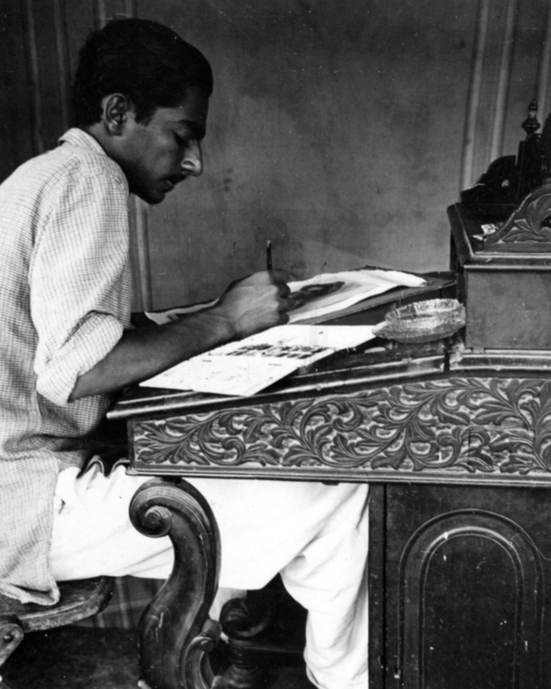
My brother Iftikhar Kadri studying.
He went to to become a celebrated Indian architect.
I would walk to primary school with my brother Iftikhar, carrying our tiffin lunches of rice, roti and goat curry. Sometimes we would use our pocket money to buy small squares of chocolate on the way home. We would play in our large courtyard and fly kites on the roof around the time of the Uttarayan kite festival in January.
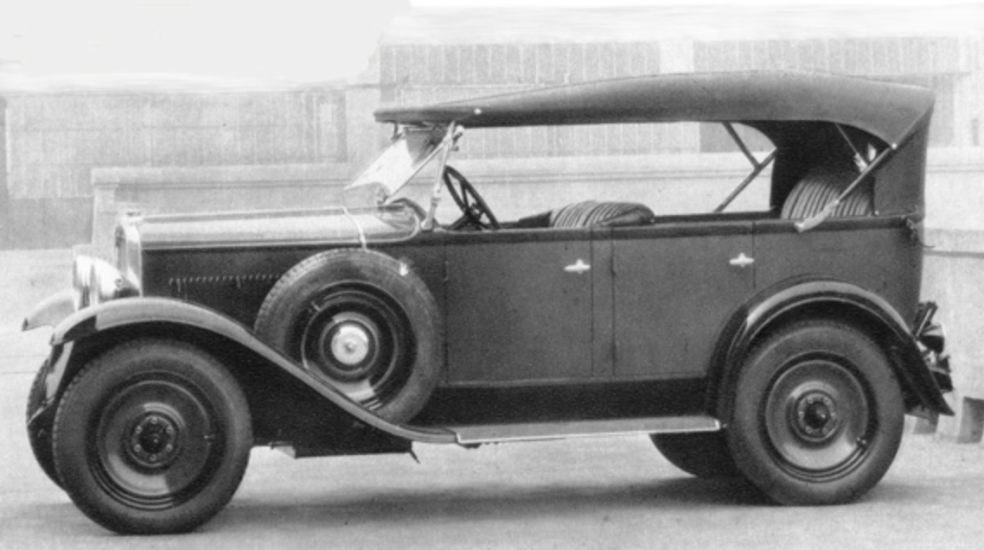
In 1933 when I was 6 years old, my father bought a maroon-coloured Fiat and Usman, the driver, joined our other servants. It was the first car I recall in our neighbourhood. For our inaugural drive we went Sarkhej Rosa after which the car opened up many opportunities to venture beyond our neighbourhood. Usman would polish the car after our dusty outings and for night excursions he would light the kerosene car lamps. Ten years later, it was Usman that taught me to drive.
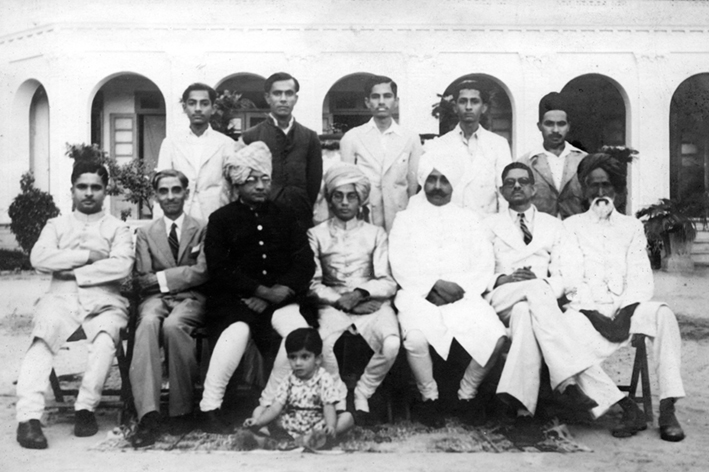
Top, left to right: Iftikhar, Uncle Molvi, Munir (me!), Sharif, Siddiq
Bottom: Haydir-saab, (unknown), Mustafa Hasan Kadri (my father),
Zahir, (unknown), Uncle Shah-saab, Uncle Amir-saab
Front: Haydir-saab’s son.

